Sci Transl Med:保护脑癌患者免受化疗副作用影响
2012-05-19 EurekAlert! EurekAlert!
5月9日,一项刊登在国际杂志Science Translational Medicine上的研究报告说,基因疗法可能有助于保护脑癌患者免受化疗的有害影响。该策略应能使患者接受更高且更有效的化疗剂量——但不会增加像血细胞计数低下这样的危险并发症的风险。血细胞下降会开启感染、过度出血及其它疾病之门,这些情况会迫使许多病人停止治疗直到细胞计数得到改善。 不幸的是,间歇性地停止治疗会给癌症一个扩散的机会
5月9日,一项刊登在国际杂志Science Translational Medicine上的研究报告说,基因疗法可能有助于保护脑癌患者免受化疗的有害影响。该策略应能使患者接受更高且更有效的化疗剂量——但不会增加像血细胞计数低下这样的危险并发症的风险。血细胞下降会开启感染、过度出血及其它疾病之门,这些情况会迫使许多病人停止治疗直到细胞计数得到改善。
不幸的是,间歇性地停止治疗会给癌症一个扩散的机会并会令其对化疗产生抗药性。脑癌细胞会大量产出一种叫做MGMT的蛋白,该蛋白会令脑癌细胞对化疗具有抗药性,因此医生会用第二种叫做苄基鸟嘌呤的药物来遏制MGMT并使肿瘤细胞对化疗变的重新敏感。不幸的是,正常的血细胞和骨髓细胞(它们无法制造MGMT)无法承受苄基鸟嘌呤与化疗的组合,因此治疗常常以损害健康细胞而告终。
Jennifer Adair及其同事设计了一种避开这一问题的方法,即在一小群的脑癌患者中对骨髓干细胞进行基因改良。这些病人罹患对化疗有抵抗力的脑肿瘤,其存活机会非常差。研究人员在病人的骨髓干细胞中嵌入了一个叫做PK140的保护性基因。PK140是设计用来防护细胞免受像替莫唑胺这样的常见化疗药物的损害。在骨髓移植之后,患者被给予了更高剂量的化疗。与那些接受同样类型化疗但没有接受基因改良的骨髓干细胞移植的患者相比,这些患者能够在干细胞移植后更好地耐受较高的化疗剂量。此外,这些接受移植的患者比预计的时间活的更长,而且没有来自改变细胞的任何不良的副作用。这些结果为研发针对克服化疗抗药性并改善脑癌患者存活力的疗法铺平了道路。(生物谷Bioon.com)

doi:10.1126/scitranslmed.3003425
PMC:
PMID:
Extended Survival of Glioblastoma Patients After Chemoprotective HSC Gene Therapy
Jennifer E. Adair1,*, Brian C. Beard1,2,*, Grant D. Trobridge3, Tobias Neff4,5, Jason K. Rockhill6,7, Daniel L. Silbergeld6,8, Maciej M. Mrugala6,9 and Hans-Peter Kiem1,2,8,†
Chemotherapy with alkylating agents for treating malignant disease results in myelosuppression that can significantly limit dose escalation and potential clinical efficacy. Gene therapy using mutant methylguanine methyltransferase (P140K) gene–modified hematopoietic stem and progenitor cells may circumvent this problem by abrogating the toxic effects of chemotherapy on hematopoietic cells. However, this approach has not been evaluated clinically. Here, we show efficient polyclonal engraftment of autologous P140K-modified hematopoietic stem and progenitor cells in three patients with glioblastoma. Increases in P140K-modified cells after transplant indicate selection of gene-modified hematopoietic repopulating cells. Longitudinal retroviral integration site (RIS) analysis identified more than 12,000 unique RISs in the three glioblastoma patients, with multiple clones present in the peripheral blood of each patient throughout multiple chemotherapy cycles. To assess safety, we monitored RIS distribution over the course of chemotherapy treatments. Two patients exhibited emergence of prominent clones harboring RISs associated with the intronic coding region of PRDM16 (PR domain–containing 16) or the 3′ untranslated region of HMGA2 (high-mobility group A2) genes with no adverse clinical outcomes. All three patients surpassed the median survival for glioblastoma patients with poor prognosis, with one patient alive and progression-free more than 2 years after diagnosis. Thus, transplanted P140K-expressing hematopoietic stem and progenitor cells are chemoprotective, potentially maximizing the drug dose that can be administered.
本网站所有内容来源注明为“梅斯医学”或“MedSci原创”的文字、图片和音视频资料,版权均属于梅斯医学所有。非经授权,任何媒体、网站或个人不得转载,授权转载时须注明来源为“梅斯医学”。其它来源的文章系转载文章,或“梅斯号”自媒体发布的文章,仅系出于传递更多信息之目的,本站仅负责审核内容合规,其内容不代表本站立场,本站不负责内容的准确性和版权。如果存在侵权、或不希望被转载的媒体或个人可与我们联系,我们将立即进行删除处理。
在此留言
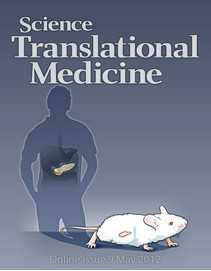



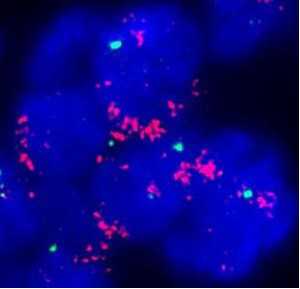
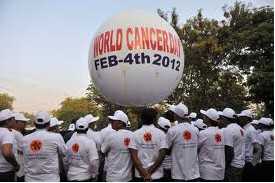
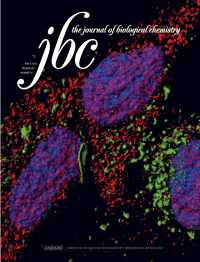
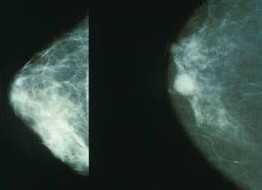

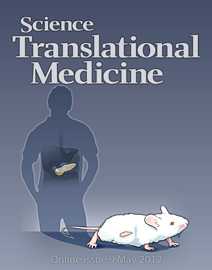




#副作用#
100
#Transl#
68
#TRA#
56
#脑癌#
56
#Med#
53